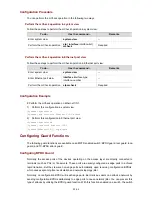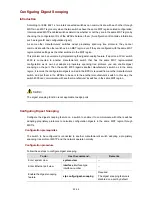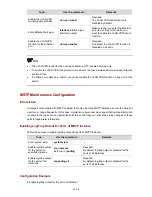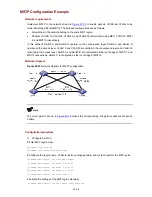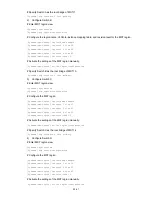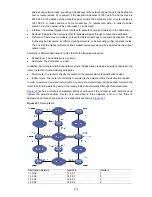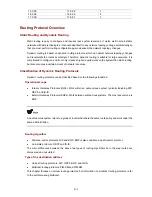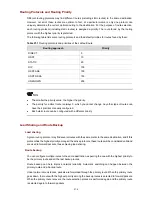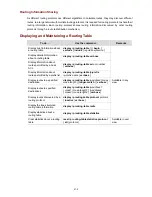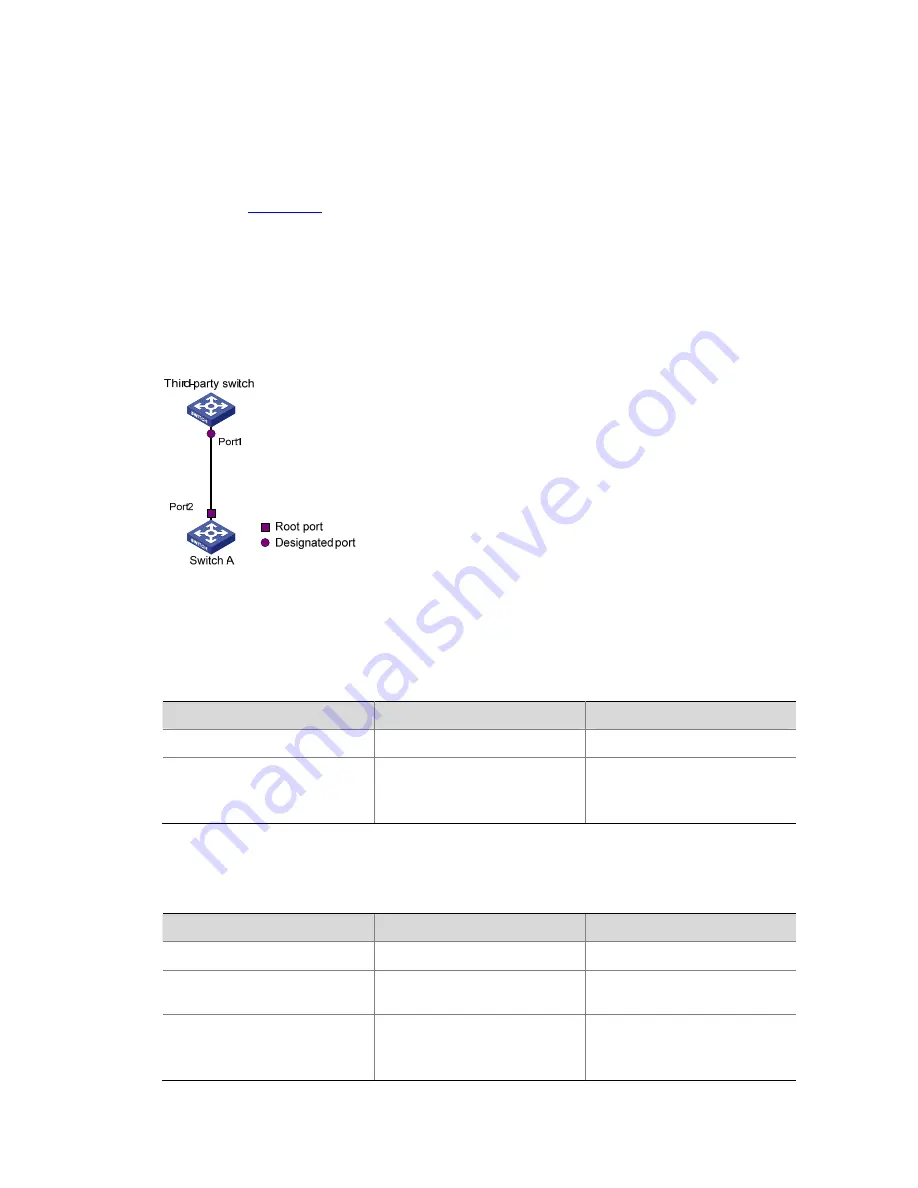
20-42
designated ports, instead of waiting for agreement packets from the upstream switch. This enables
designated ports of the upstream switch to change their states rapidly.
Configuring Rapid Transition
Configuration prerequisites
As shown in
Figure 20-8
, a 3Com switch 4500 is connected to another manufacturer's switch. The
former operates as the downstream switch, and the latter operates as the upstream switch. The
network operates normally.
The upstream switch is running a proprietary spanning tree protocol that is similar to RSTP in the way to
implement rapid transition on designated ports. Port 1 is the designated port.
The downstream switch is running MSTP. Port 2 is the root port.
Figure 20-8
Network diagram for rapid transition configuration
Configuration procedure
1) Configure the rapid transition feature in system view
Follow these steps to configure the rapid transition feature in system view:
To do...
Use the command...
Remarks
Enter system view
system-view
—
Enable the rapid transition
feature
stp interface
interface-type
interface-number
no-agreement-check
Required
By default, the rapid transition
feature is disabled on a port.
2) Configure the rapid transition feature in Ethernet port view
Follow these steps to configure the rapid transition feature in Ethernet port view:
To do...
Use the command...
Remarks
Enter system view
system-view
—
Enter Ethernet port view
interface
interface-type
interface-number
—
Enable the rapid transition
feature
stp no-agreement-check
Required
By default, the rapid transition
feature is disabled on a port.







